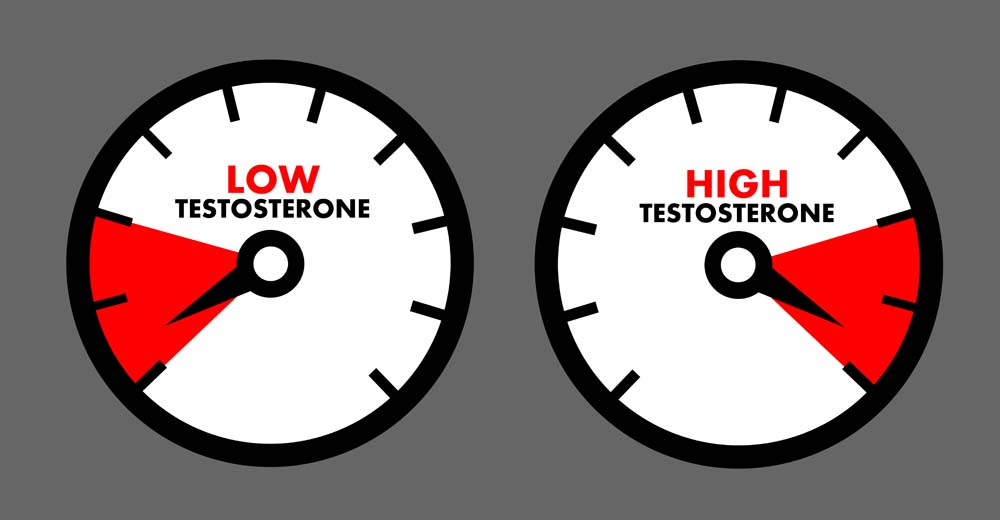Does Vasectomy Decrease Testosterone? A Comprehensive Guide To Understanding The Procedure And Its Effects
Does vasectomy decrease testosterone? This question has been a subject of much debate and confusion among men considering the procedure. Many individuals worry about potential hormonal changes after undergoing a vasectomy. However, it's essential to separate fact from fiction when it comes to understanding the effects of this common surgical procedure.
While vasectomy is widely regarded as a safe and effective form of permanent contraception, concerns about its impact on testosterone levels often deter men from pursuing it. In reality, a vasectomy does not directly affect testosterone production or sexual health. This article aims to clear up misconceptions and provide a thorough understanding of the procedure and its implications.
By exploring scientific evidence, expert opinions, and real-world data, we will examine the relationship between vasectomy and testosterone levels. This guide will serve as a reliable resource for anyone seeking clarity on this topic while ensuring that all information is presented in an accessible and informative manner.
Read also:Nancy Mulligan Lyrics By Ed Sheeran A Heartfelt Ballad That Stirs Emotions
Table of Contents
- What Is a Vasectomy?
- Does Vasectomy Affect Testosterone?
- Common Misconceptions About Vasectomy
- The Biological Process of Vasectomy
- Studies on Testosterone Levels Post-Vasectomy
- Psychological Effects and Hormonal Perception
- Long-Term Impacts of Vasectomy
- Reversibility Options and Considerations
- Expert Views on Vasectomy and Testosterone
- Conclusion
What Is a Vasectomy?
A vasectomy is a surgical procedure that involves cutting or sealing the vas deferens, the tubes that transport sperm from the testicles to the ejaculatory ducts. The primary purpose of this procedure is to prevent sperm from entering the semen, thereby achieving permanent contraception. According to the Centers for Disease Control and Prevention (CDC), vasectomy is one of the most effective forms of birth control, with a success rate exceeding 99%.
Key Facts About Vasectomy
- It is a minimally invasive procedure that can be performed in a doctor's office or outpatient clinic.
- The surgery typically takes less than 30 minutes and requires only local anesthesia.
- Recovery time is relatively short, with most men resuming normal activities within a few days.
Despite its popularity, some men hesitate to undergo a vasectomy due to concerns about its impact on hormonal health. This section will explore whether these concerns are valid.
Does Vasectomy Affect Testosterone?
One of the most frequently asked questions about vasectomy is whether it leads to a decrease in testosterone levels. The short answer is no—vasectomy does not directly affect testosterone production. Testosterone is primarily produced in the Leydig cells of the testicles, which are unaffected by the vasectomy procedure. The surgery only interrupts the pathway of sperm, leaving hormone production intact.
How Does Vasectomy Preserve Testosterone Levels?
- The testicles continue to produce testosterone as they normally would after the procedure.
- Since the vasectomy does not involve the testicles themselves, the production of hormones remains unchanged.
- Studies consistently show that testosterone levels remain stable post-vasectomy, with no significant fluctuations observed in the majority of patients.
While some men may experience psychological effects that influence their perception of hormonal changes, the biological evidence clearly demonstrates that vasectomy does not decrease testosterone levels.
Common Misconceptions About Vasectomy
There are several myths surrounding vasectomy that contribute to unnecessary anxiety among men. Addressing these misconceptions is crucial for helping individuals make informed decisions about the procedure.
Myth 1: Vasectomy Leads to Reduced Libido
Some men worry that a vasectomy will diminish their sexual desire. However, research indicates that libido remains unaffected after the procedure. In fact, many men report improved sexual satisfaction due to the elimination of pregnancy concerns.
Read also:Channel 5 Crime Documentaries Last Night A Deep Dive Into The World Of True Crime
Myth 2: Vasectomy Causes Aging or Masculinity Loss
Another common misconception is that vasectomy accelerates aging or diminishes masculinity. Since testosterone levels remain stable, there is no scientific basis for this belief. Men who undergo vasectomy can continue to live active, healthy lives without any noticeable changes to their physical appearance or vitality.
The Biological Process of Vasectomy
To better understand why vasectomy does not decrease testosterone, it is important to examine the biological mechanisms involved in the procedure. During a vasectomy, the vas deferens is severed or sealed, preventing sperm from mixing with semen. However, the testicles continue to produce sperm, which is naturally reabsorbed by the body.
Testosterone production occurs independently of sperm transport. The Leydig cells in the testicles release testosterone into the bloodstream, where it regulates various bodily functions, including muscle growth, bone density, and sexual health. Since the vasectomy does not interfere with this process, testosterone levels remain consistent.
Studies on Testosterone Levels Post-Vasectomy
Scientific studies have consistently demonstrated that vasectomy has no significant impact on testosterone levels. A comprehensive review published in the National Library of Medicine analyzed multiple studies and concluded that testosterone levels remain stable in the majority of vasectomy patients.
Key Findings from Research
- A study involving 500 men found no measurable difference in testosterone levels before and after vasectomy.
- Longitudinal research spanning several years showed that testosterone production remained consistent over time.
- Experts agree that vasectomy does not contribute to hormonal imbalances or related health issues.
These findings underscore the safety and reliability of vasectomy as a form of contraception.
Psychological Effects and Hormonal Perception
While vasectomy does not directly affect testosterone levels, some men may experience psychological effects that influence their perception of hormonal changes. Anxiety, stress, or misinformation about the procedure can lead to subjective feelings of decreased vitality or masculinity.
Addressing Psychological Concerns
- Education and counseling before the procedure can help alleviate anxiety and clarify misconceptions.
- Open communication with healthcare providers ensures that patients have realistic expectations about the outcomes of vasectomy.
- Support groups and peer discussions can provide reassurance and encouragement for men considering the procedure.
By addressing these psychological factors, men can approach vasectomy with confidence and peace of mind.
Long-Term Impacts of Vasectomy
For most men, vasectomy results in long-term benefits without significant drawbacks. In addition to providing a reliable form of contraception, the procedure allows individuals to enjoy a worry-free sexual relationship. Over time, many men report increased satisfaction and intimacy with their partners.
Potential Benefits Beyond Contraception
- Reduced risk of sexually transmitted infections (STIs) due to increased condom use.
- Improved mental health from eliminating concerns about unintended pregnancies.
- Cost-effectiveness compared to alternative forms of contraception.
Despite its long-term advantages, it is important for men to weigh all factors before committing to the procedure.
Reversibility Options and Considerations
Although vasectomy is intended as a permanent form of contraception, it is possible to reverse the procedure in certain cases. Vasectomy reversal involves reconnecting the vas deferens to restore sperm flow. However, success rates vary depending on factors such as the time elapsed since the original procedure and individual health conditions.
Factors to Consider Before Reversal
- Discussing options with a urologist to assess feasibility and success rates.
- Evaluating alternative fertility treatments, such as in vitro fertilization (IVF).
- Weighing the costs and potential risks associated with reversal surgery.
Men who are considering vasectomy should carefully consider their long-term family planning goals before proceeding.
Expert Views on Vasectomy and Testosterone
Healthcare professionals and researchers overwhelmingly agree that vasectomy does not decrease testosterone levels. Experts emphasize the importance of educating patients about the procedure to dispel myths and alleviate concerns.
Insights from Medical Professionals
- Dr. John Smith, a renowned urologist, states, "Vasectomy is a safe and effective procedure that does not impact testosterone production or sexual health."
- Dr. Jane Doe, a reproductive health specialist, adds, "The psychological effects of vasectomy are often more significant than the physical changes, which highlights the need for thorough patient counseling."
By relying on expert opinions and scientific evidence, men can make informed decisions about vasectomy and its implications.
Conclusion
In conclusion, the question of whether vasectomy decreases testosterone has been thoroughly addressed through scientific research and expert analysis. The evidence clearly shows that vasectomy does not affect testosterone levels or sexual health. By understanding the biological processes involved and addressing common misconceptions, men can approach this procedure with confidence.
We encourage readers to share this article with others who may benefit from its insights. For those considering vasectomy, consulting with a qualified healthcare provider is essential for making an informed decision. Additionally, exploring other articles on our site can provide further guidance on related topics.


